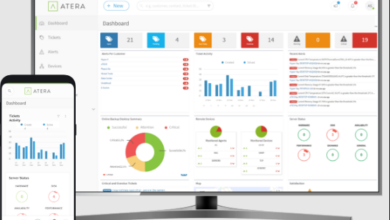Merchant Services Card Processing

Merchant Services Card Processing – Merchant services card processing is the process of accepting credit and debit card payments for goods or services.
What is Merchant Services Card Processing?

Merchant services card processing is the process of accepting credit and debit card payments for goods and services. It involves a number of steps, including:
- The customer swipes their card at a point-of-sale (POS) terminal.
- The POS terminal sends the customer’s card information to a payment processor.
- The payment processor verifies the customer’s card information and sends it to the cardholder’s bank.
- The cardholder’s bank authorizes the transaction and sends the funds to the merchant’s bank.
- The merchant’s bank deposits the funds into the merchant’s account.
The Benefits of Merchant Services Card Processing
In today’s digital age, customers expect a smooth and convenient payment experience. Merchant services card processing offers a powerful solution, allowing businesses to accept credit and debit cards securely and efficiently. But the advantages go far beyond simply offering another payment option. Here’s a closer look at the key benefits of implementing merchant services card processing:
Increased Sales and Customer Reach:
- Wider Customer Base: Accepting cards opens your business to a vast pool of customers who prefer the ease and security of card payments. This can significantly boost sales, especially for online businesses.
- Increased Average Transaction Value: Studies show customers tend to spend more when using cards compared to cash. This can lead to higher overall revenue.
Enhanced Convenience and Customer Satisfaction:
- Faster Transactions: Card processing streamlines the checkout process, reducing wait times and improving customer satisfaction.
- 24/7 Availability: Online card processing allows customers to make purchases anytime, anywhere, further increasing convenience.
Improved Cash Flow and Business Operations:
- Faster Access to Funds: Unlike checks, card payments provide immediate access to funds, improving cash flow and financial management.
- Reduced Risk of Fraud: Modern cards come with advanced security features, minimizing the risk of counterfeit bills and fraudulent transactions.
- Simplified Record Keeping: Electronic transactions provide clear and detailed records for easier accounting and bookkeeping.
Additional Advantages:
- Improved Brand Image: Accepting cards portrays your business as professional, modern, and trustworthy, potentially attracting new customers.
- Inventory Management: Card processing often integrates with inventory management systems, providing real-time data for better stock control.
- Marketing Opportunities: Some card processing solutions offer features like loyalty programs and targeted marketing tools to enhance customer engagement.
While there are associated costs like processing fees, the numerous benefits of merchant services card processing often outweigh them. By offering a convenient and secure payment option, businesses can unlock significant growth potential and enhance the overall customer experience.
The Costs of Merchant Services Card Processing
There are a number of costs associated with accepting credit and debit card payments, including:
- Processing fees: Payment processors charge a fee for each transaction they process.
- Interchange fees: These fees are charged by the cardholder’s bank to the merchant’s bank.
- PCI compliance fees: Merchants must comply with the Payment Card Industry Data Security Standards (PCI DSS) in order to protect customer data.
How to Choose a Merchant Services Provider
Finding the ideal merchant services provider is crucial for businesses accepting credit and debit card payments. With a vast array of options available, the selection process can seem overwhelming. Here’s a comprehensive guide to help you choose the provider that best suits your specific needs:
1. Assess Your Business Requirements:
- Transaction Volume: Estimate your average monthly or yearly transaction volume. Providers may offer tiered pricing based on volume.
- Types of Cards Accepted: Consider the types of cards your target customers typically use (Visa, Mastercard, etc.) and ensure the provider supports them.
- Payment Methods: Identify your preferred processing methods (in-person POS, online payments, mobile wallets).
2. Research and Compare Providers:
- Industry Reputation: Look for established providers with a proven track record and positive customer reviews.
- Pricing Structure: Carefully compare processing fees, interchange fees, monthly charges, and any additional costs.
- Security Measures: Ensure the provider prioritizes data security and adheres to PCI compliance standards to protect customer information.
- Customer Support: Evaluate the level and availability of customer support offered (phone, email, live chat). Integration Capabilities: See if the provider’s system integrates seamlessly with your existing accounting software or Point-of-Sale system.
3. Consider These Additional Factors:
- Contract Terms: Review contract length, termination clauses, and any early termination fees.
- Scalability: Choose a provider that can accommodate your business growth and adapt to future needs.
- Additional Services: Explore if the provider offers value-added services like fraud prevention tools or marketing programs.
4. Negotiate and Secure the Best Deal:
- Once you shortlist a few providers, don’t hesitate to negotiate fees and contract terms based on your transaction volume and business needs.
- Request proposals outlining the provider’s services, pricing, and terms for a clear comparison.
5. Free Trials and Pilot Programs:
- Some providers may offer free trials or pilot programs to test their platform and customer support before committing.
By following these steps and carefully evaluating your options, you can choose a merchant services provider that empowers your business to accept payments efficiently, securely, and cost-effectively. Remember, the ideal provider should be a reliable partner that aligns with your growth goals and enhances your overall customer experience.
The Future of Merchant Services Card Processing
The future of merchant services card processing is likely to be shaped by a number of trends, including:
- The growth of e-commerce: More and more customers are shopping online, which is driving the demand for online payment processing.
- The rise of mobile payments: Mobile payments are becoming increasingly popular, as customers are using their smartphones and tablets to make payments.
- The adoption of contactless payments: Contactless payments are becoming more popular, as they offer a quick and convenient way to pay for goods and services.
Overall, merchant services card processing is a complex and ever-changing industry. However, by understanding the basics of how it works and the factors to consider when choosing a provider, businesses can make informed decisions about how to accept credit and debit card payments.




